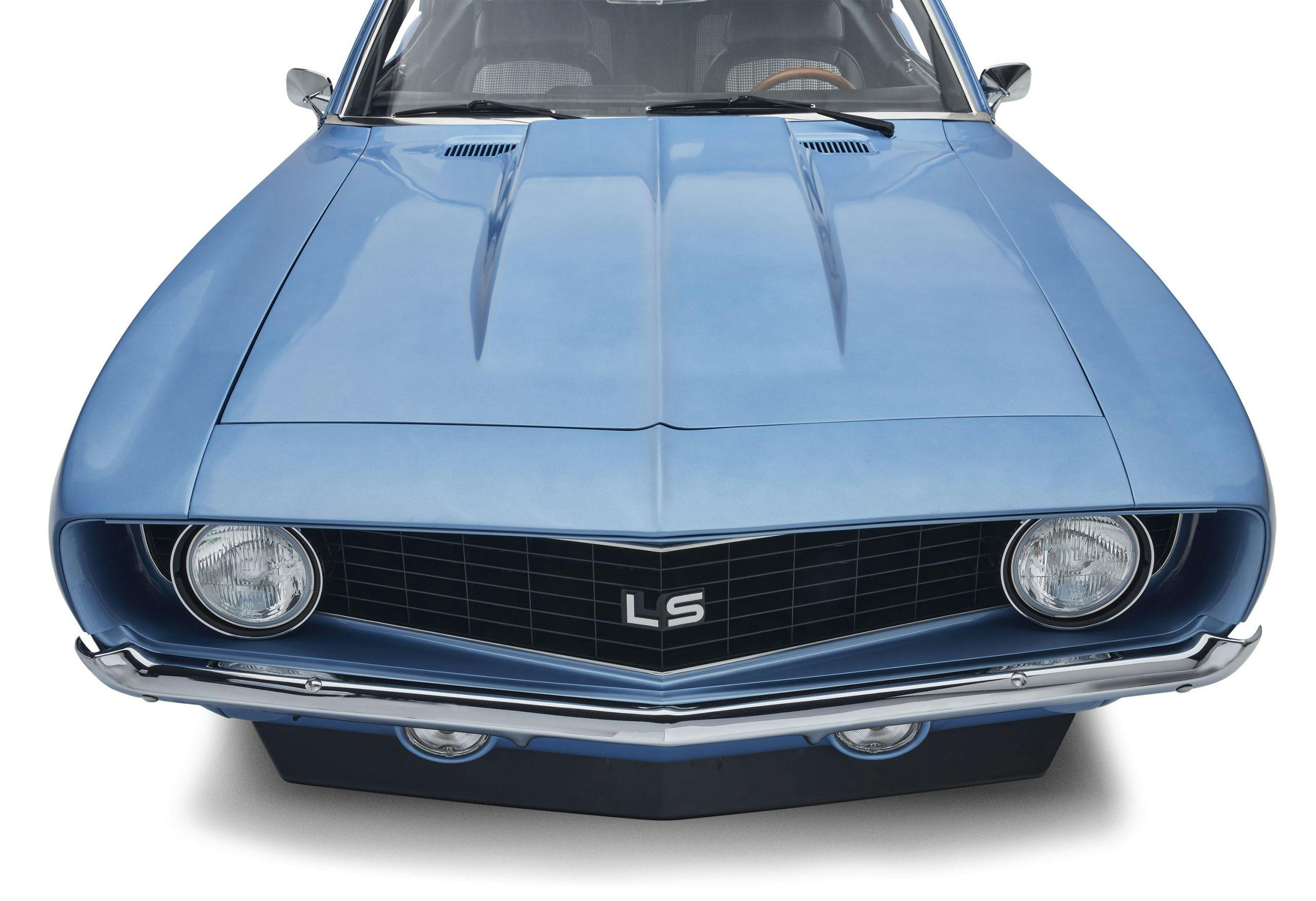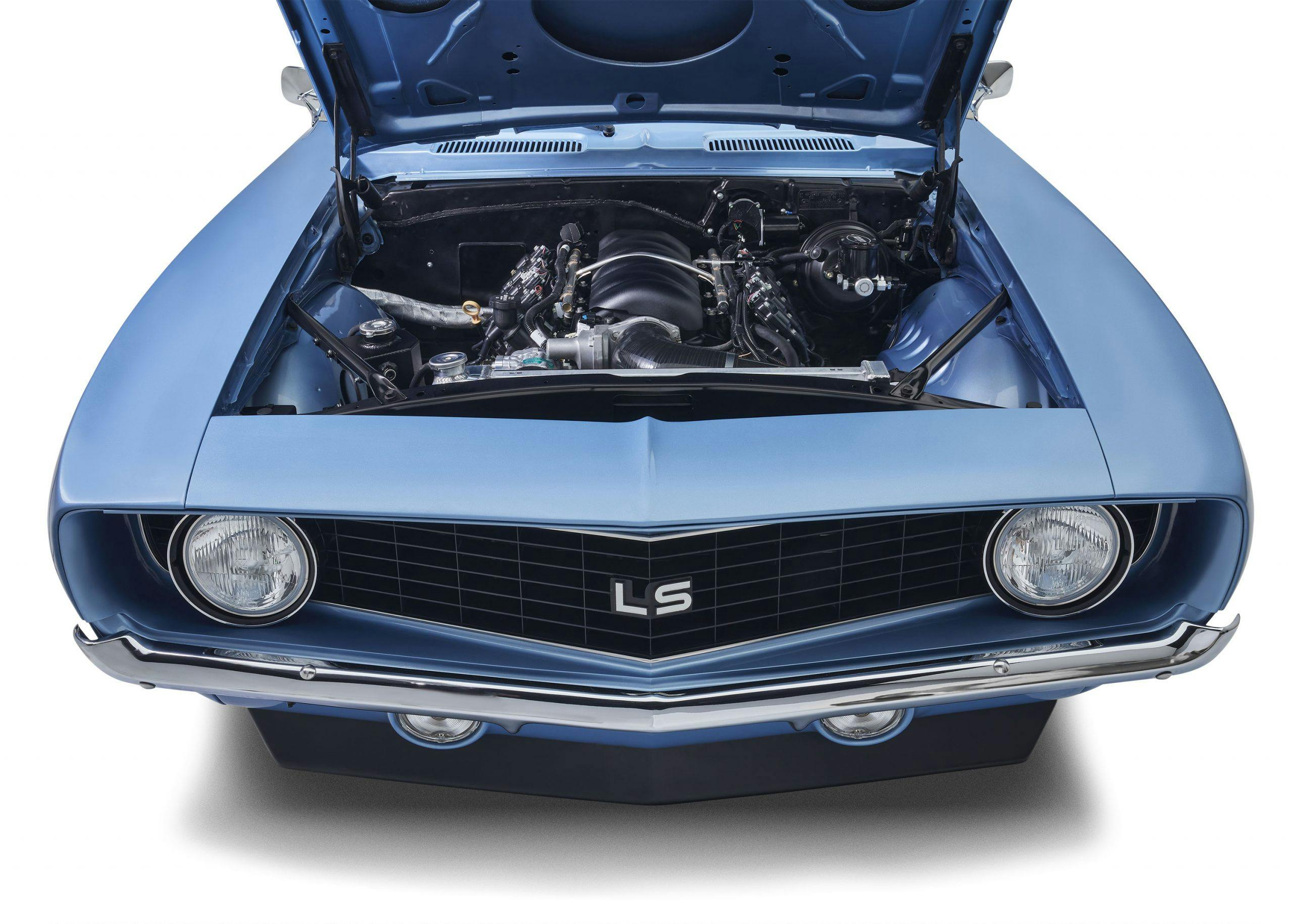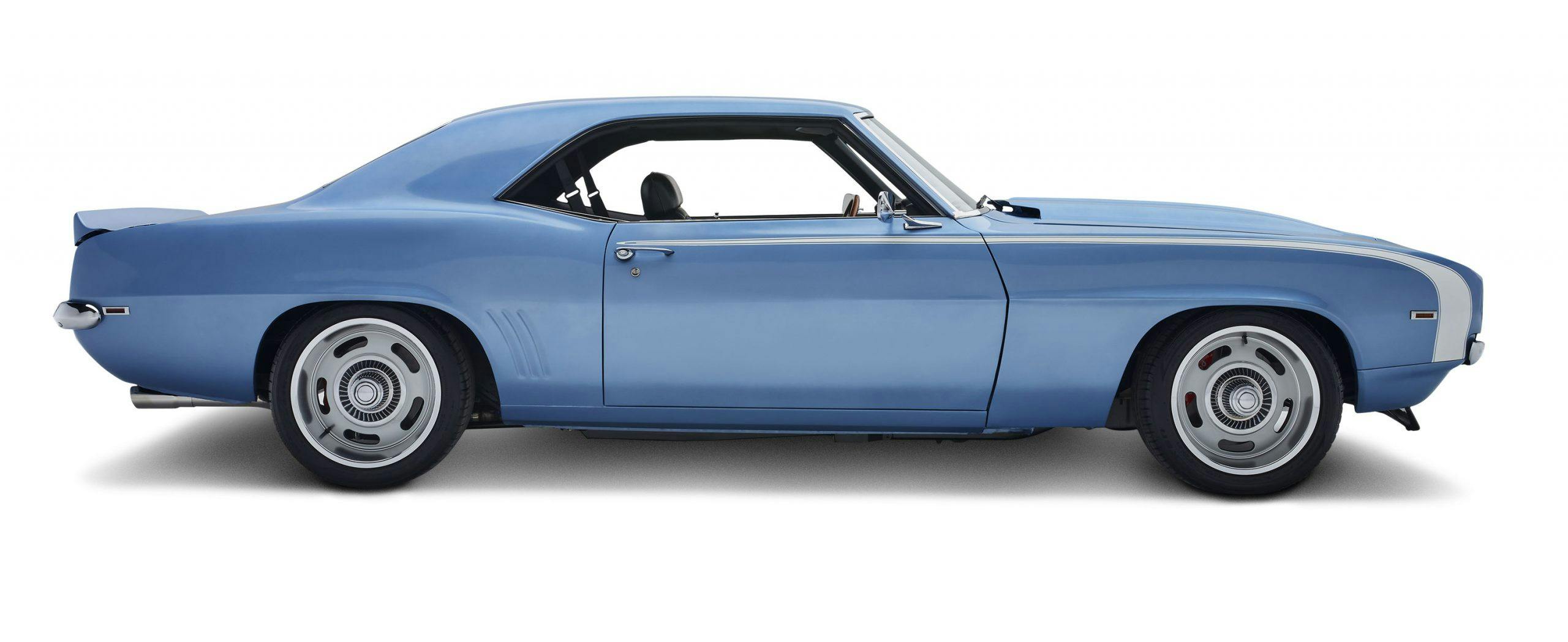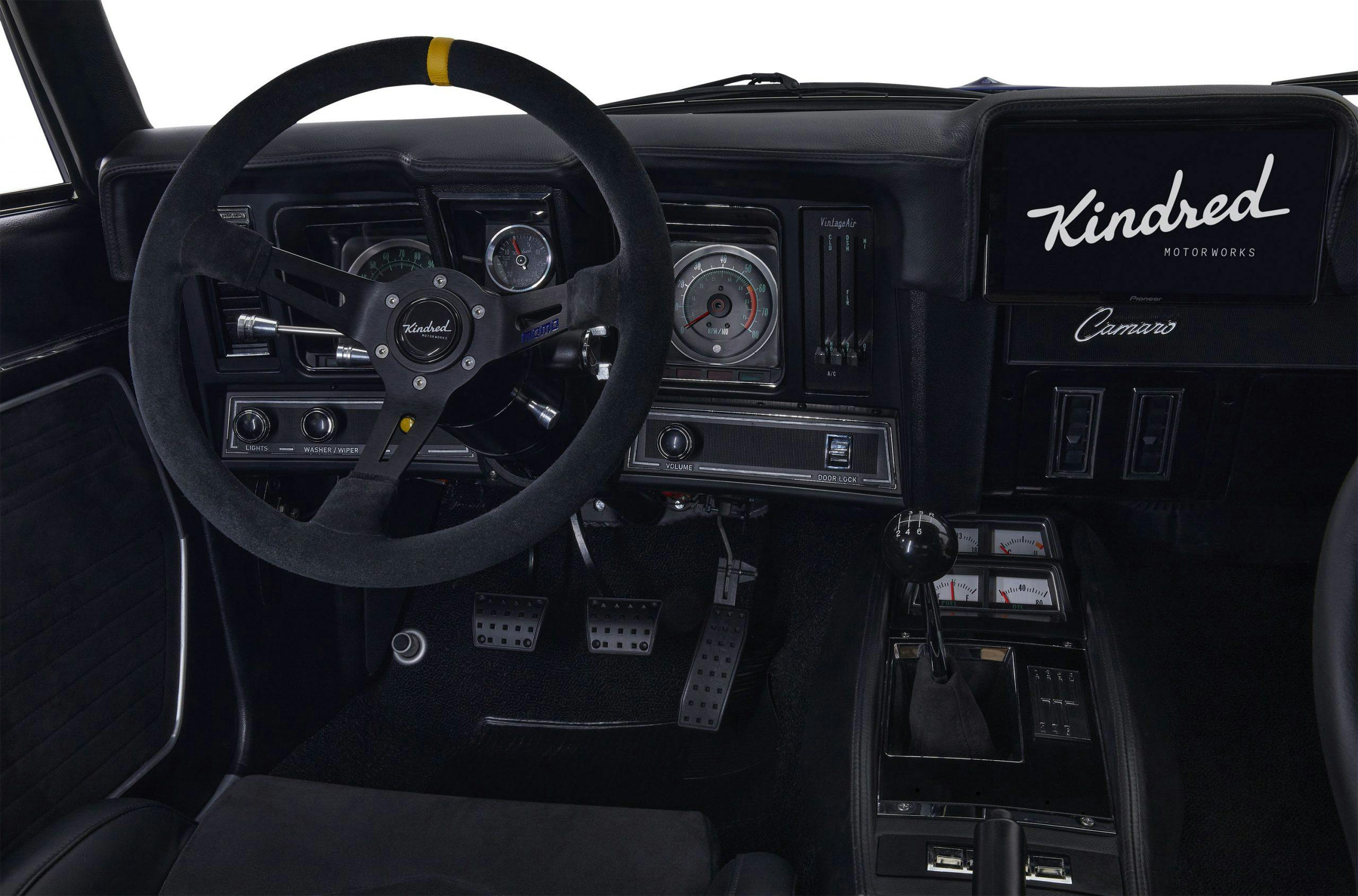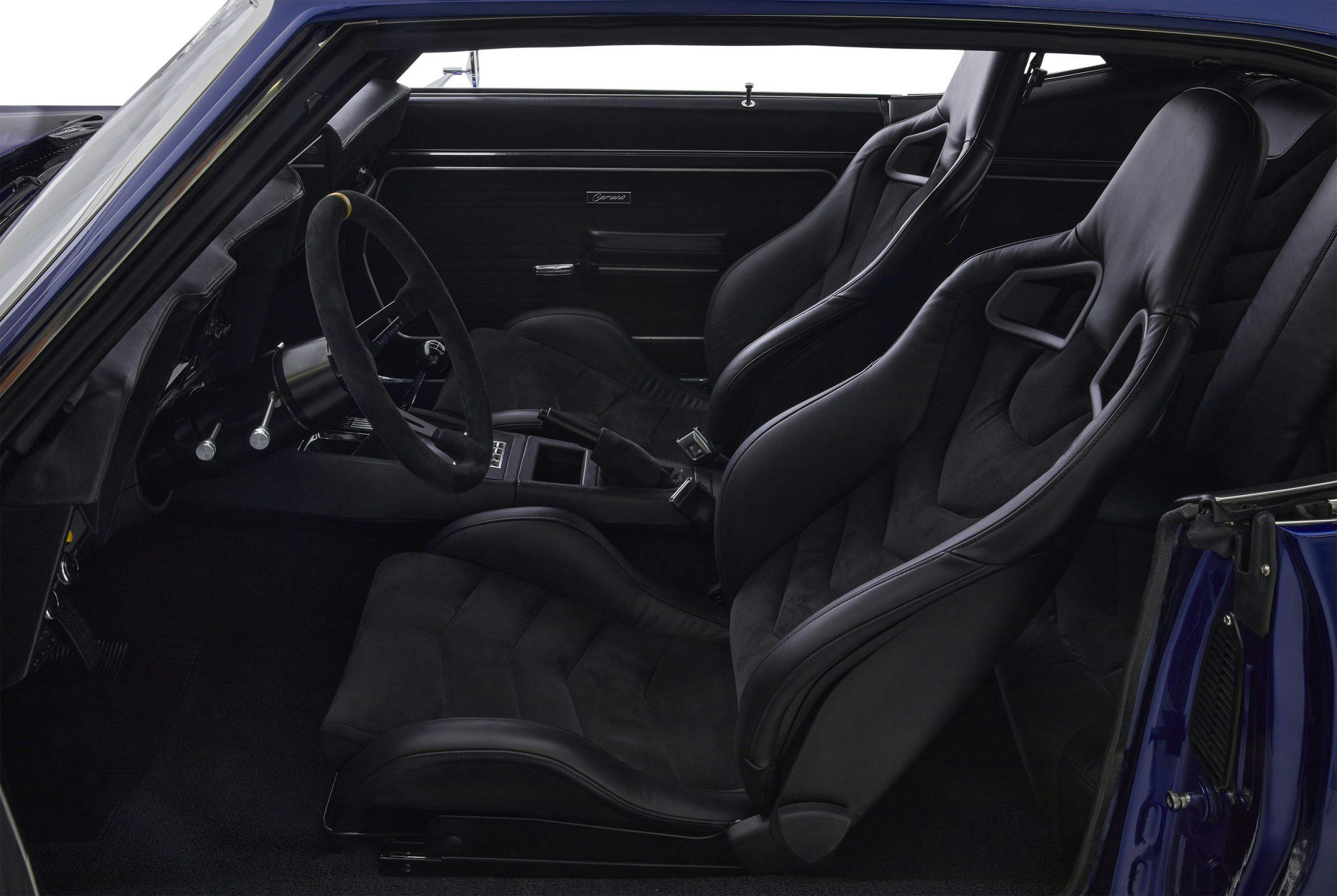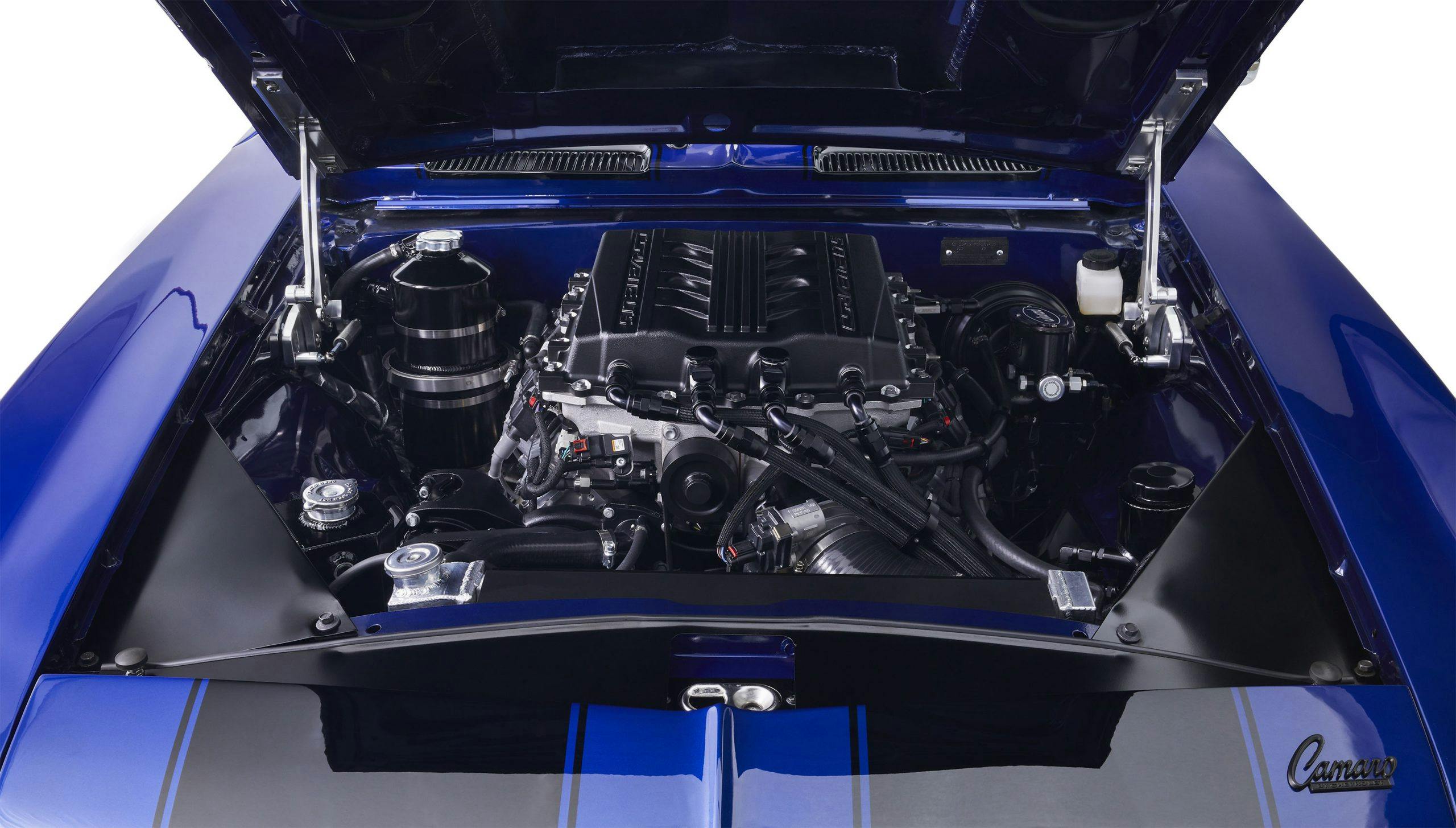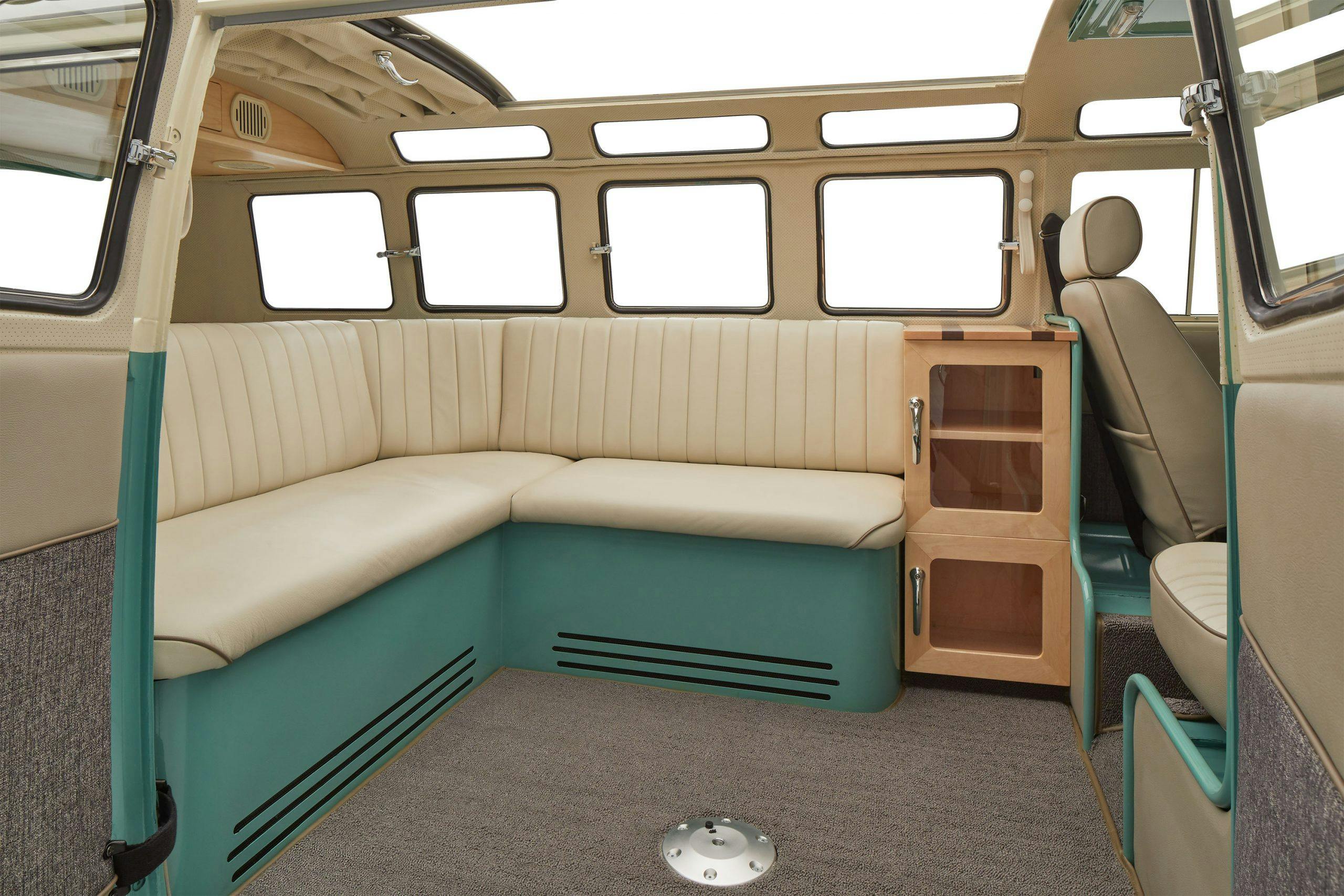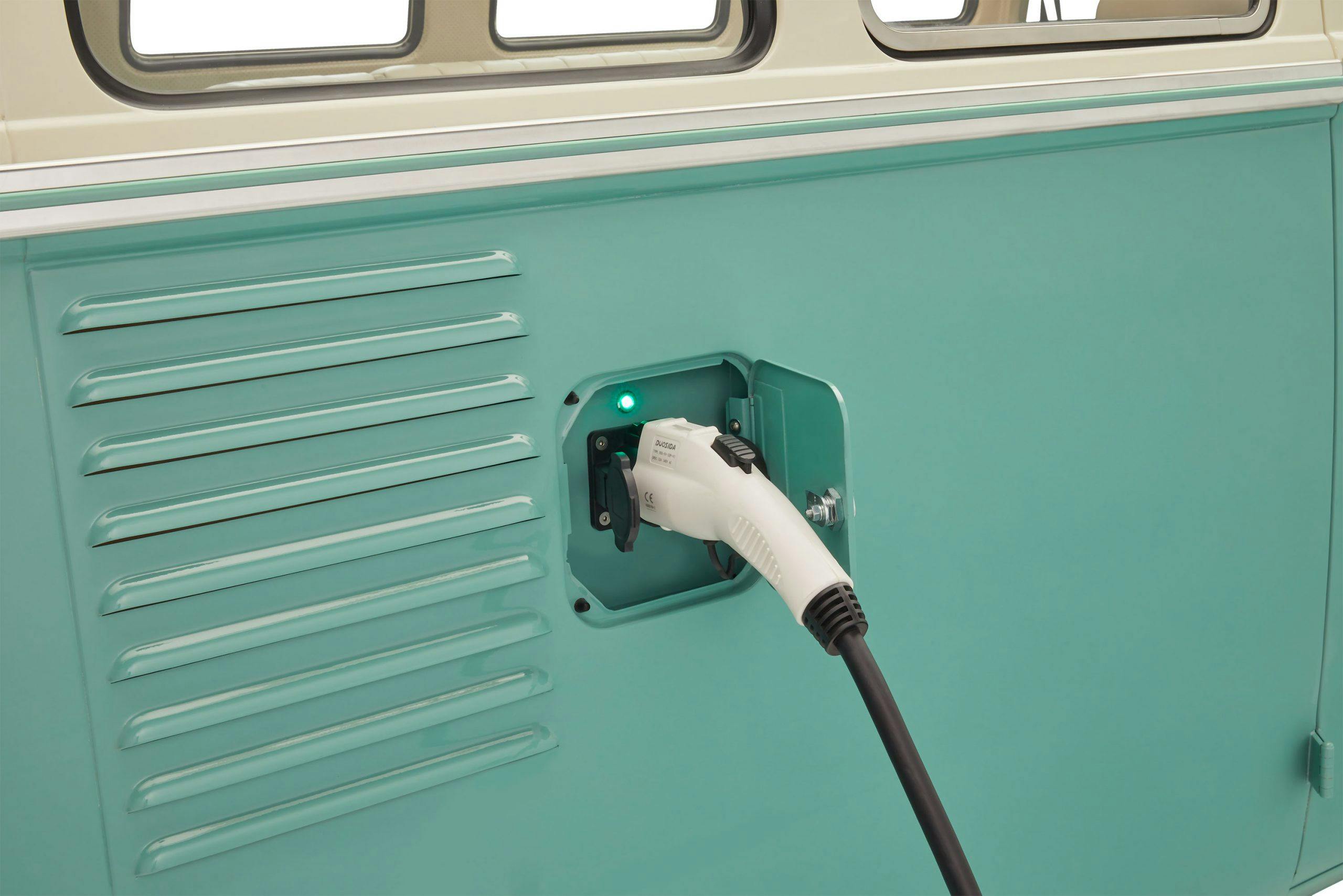Kindred Motorworks wants to untangle the restomod knot
In two decades of sympathetically modifying cars, we’ve come a long ways from muscle car owners’ brains nearly exploding at the mere suggestion of upgrading their ’60s classic with fuel injection and disc brakes. Today, it’s not uncommon for top shops building mega-dollar restomods to use little more than the donor car’s body shell. A whole lot of people, it turns out, are willing to spend huge sums to enjoy modern performance and reliability in a classic body, with side helpings of comfort and modern tech.
Too bad you can’t just order a ’69 Camaro restomod like you can a 2022 Camaro, with the benefit of a warranty and service network support. Well, that might soon be changing. At Hagerty’s Motorlux event in Monterey, California, in August, upstart Kindred Motorworks opened pre-orders for the first models in a line of fully modernized classic vehicles. Kindred’s opening quartet will include the ’69 Camaro, first-gen Volkswagen Bus and Ford Bronco, and the late-’40s Chevy 3100 pickup. Prices are steep, ranging from $149,000 for the Camaro with the LS3 V-8 to $199,000 for the battery-electric VW Bus.
Company founder and CEO Rob Howard expects most customers will drive the cars rather than preserve them in garages for future buyers.
“We’re building them so that you can enjoy the drive,” Howard tells Hagerty. “They’ll have power disc brakes, modern tires, and perfect balance across the four wheels. All will have seatbelts, headrests, cup holders, rearview camera, and Bluetooth stereo.”
Who is Kindred?
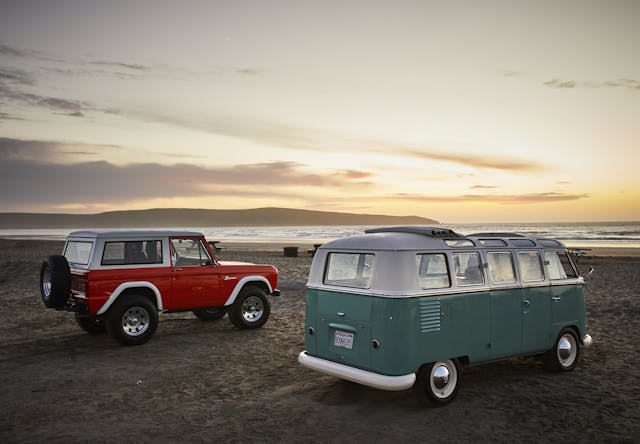
Based on Mare Island in Vallejo, California, Kindred Motorworks is currently prepping its production facility. Howard expects to start production in 2024 and deliver the first customer cars by the end of that year.
Production, you say? Yes, as in an assembly line. However, the process is more akin to that of specialty makers such as Morgan, which use standardized parts and processes as well as extensive work by skilled hands. In that context, Kindred’s projected numbers are ambitious. Company founder and CEO Rob Howard sees the company ramping up to 300 employees and eventually building 1000 restomod vehicles per year.
“Not right now, but that’s where it’s headed,” Howard says.
Kindred Motorworks did not grow out of any existing custom builder. Howard and his core team have been working together for 15 years building supply chain and technology companies, which were sold to a larger retailer. Standardization is their expertise, but they are also car enthusiasts and collectors. Howard believes their combination of talents and experience provides a strong foundation for Kindred.
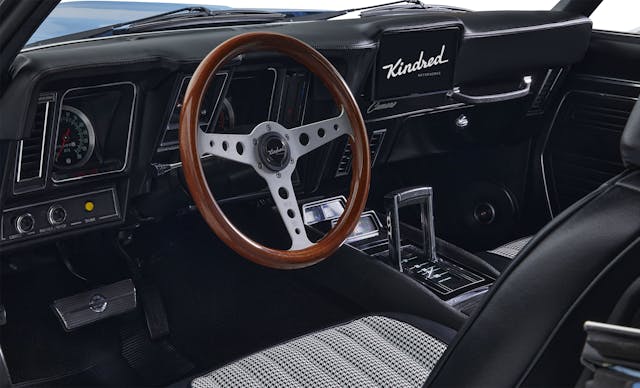
The idea of a restomod company, Howard explains, came to him when he was reviewing the logbook of all work done to build his’57 Chevy wagon over four years.
“I worked with nine different vendors for that car,” he recalls. “The timeline really got dragged out. I was looking at the book and realized how complex the process had been. I knew as a tech person I could organize it in a much more efficient way if I applied technology to it. I thought there could be a real business to simplifying the modernization of these cars.”
Howard says the response at Motorlux in Monterey was encouraging. Attendees saw only the VW Bus in the metal but were drawn to the other vehicles on Kindred’s roster. “We opened pre-orders. We’re way ahead of schedule from where we thought we’d be.”
ICE and EV
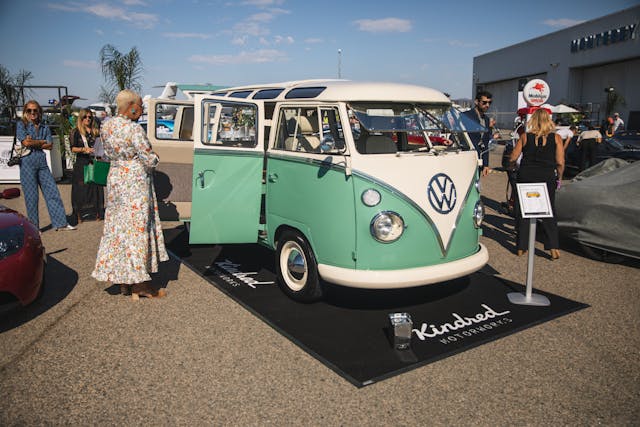
Kindred’s revamped Camaro and Bronco will have good ol’ V-8s to start, with battery-electric versions promising 200-mile ranges in the design stage. The VW Bus and Chevy pickup will be BEV-only. Howard says the EV options were well received at the Monterey event, the Bus in particular.
“Those buses had 46 horsepower originally and were not that safe. Ours will have enough power to easily get onto the highway with the flow of traffic. That changes the experience dramatically. You can go up hills without worrying about what’s behind you.”
The ’69 Camaro “LS” comes with Chevy’s 495-hp 6.2-liter LS3 V-8 and six-speed automatic or manual transmission. Performance hardware include power rack-and-pinion steering, four-link rear suspension, and a nine-inch Torsen limited-slip differential. Inside, you’ll find the classic ’69 Camaro houndstooth upholstery and, for the automatic, a basket-handle style shifter like the original.
A $199,000 “LT” version packs the 700-hp supercharged LT5 and rides on independent rear suspension and 19-inch forged aluminum wheels with Michelin Pilot Sport Cup 2 tires. Its leather and Alcantara interior will have Recaro Sportster GT seats and a Momo Mod 08 steering wheel.
Notably, Kindred is building these Camaros its own way—no SS396 lookalikes.
The Bronco is pure Ford, with a 460-hp, DOHC, Coyote V-8 under the hood. Its paint palette includes 10 bright ’60s-flavored hues, with no grays at all. Priced at $169,000, it’s a bit more accessible than the $250,000 an established player like Gateway Bronco asks. Howard says Kindred will add more models in coming years.
Backed by investors
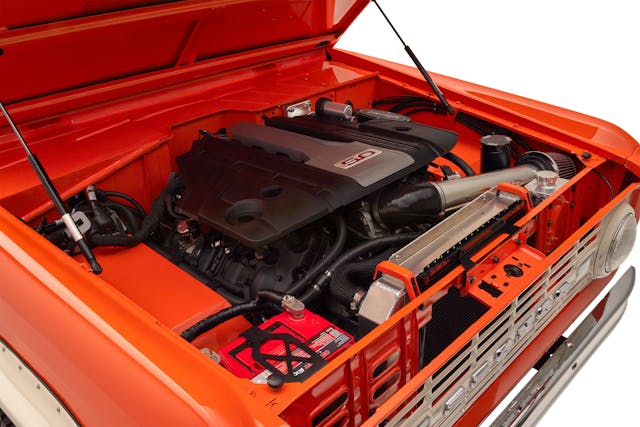
You’ve probably read stories of high-budget restomods taking a year or more to build. A car with complex needs might go from shop to shop for different steps of the build and get stuck in one waiting for backordered or custom parts. Kindred’s plan chucks that whole scenario.
“We have everything under one roof,” Howard explains. “Our paint shop, upholstery shop, tire shop … everything we need is here. There are no third-party sub-contractors involved in our restorations.”
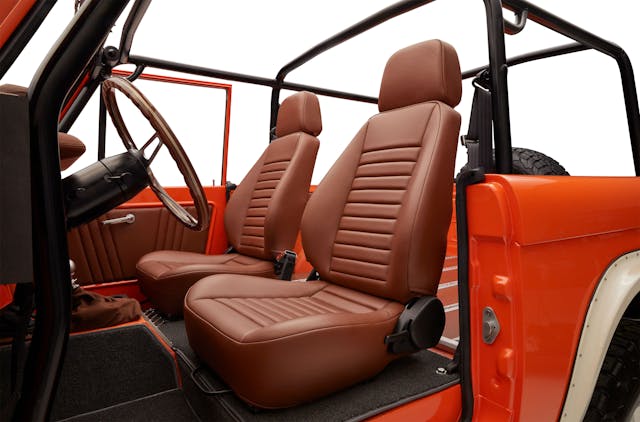
It’s an ambitious plan supported by investors. The company reports that it raised $20M through two funding rounds, with backers including venture players like CPMG, Goldcrest, Fifth Down Capital, and Robert Downey, Jr.’s Footprint Coalition. Other angel investors come from the automotive, technology, and investment communities. (Full disclosure: Hagerty is an investor in Kindred Motorworks.)
Rebuilding old like new
Howard emphasizes that Kindred Motorworks is not a manufacturer like Revology, which builds brand-new reproduction classic Mustangs based on the Dynacorn body shells. He says backers were attracted by Kindred’s approach to restoring and rebuilding cars, albeit scaled up and applying a wide array of standardization processes.
While Kindred may not officially be a manufacturer, it follows a similar approach. The company has created a literal blueprint and assembly manual for each model. All cars start as an original core with a VIN. That way, the company avoids any production restrictions placed on small-volume specialty car manufacturers.
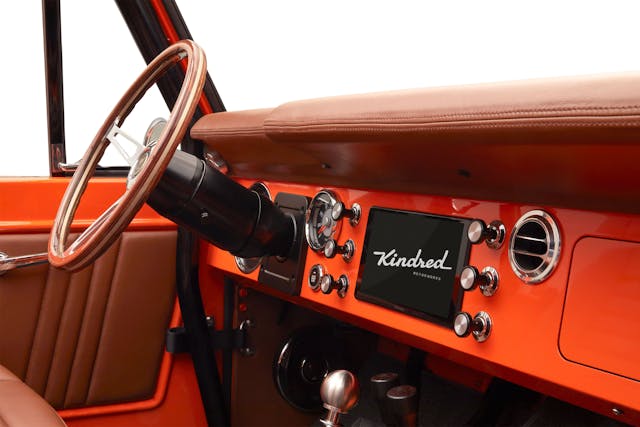
“In a lot of ways, we’re an integrator of existing systems,” says Howard. “We have a brake partner, a seat partner, stereo partner, et cetera.”
Kindred will source donor cars from around the country, according to company spokesman Alex Nunez. “The population of donor vehicles is not small,” he says. “For every great vintage car or truck you see, there might be a dozen or more like it resting somewhere.”
There’s no need start with a rare Camaro, for example. A base six-cylinder or V-8 model will do just fine, because all of the mechanicals will be replaced as part of Kindred’s restoration process.
Replicating a custom build
Howard understands that the Kindred cars may have a different appeal than traditional restomods built according to the custom specs of individual owners.
“We create the designs. We build the exact same car over and over. It’s like a new car in that sense, where you can choose a color, maybe a tire choice, but very limited options. That allows us to manage our supply chain, so we can buy our parts by the container load instead of for one-off situations.”
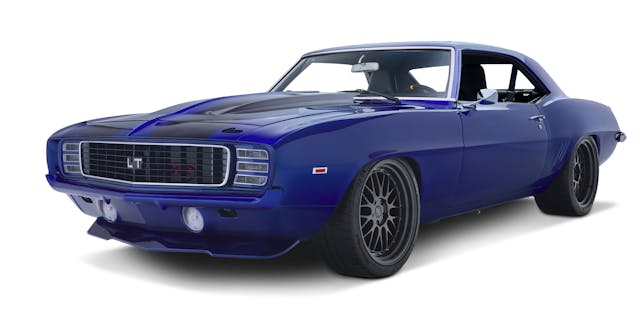
While some might say that lack of customization seems to defy the restomod ethos, Howard explains why he sees promise in Kindred’s business model.
“Many people buy vintage cars and are then disappointed when they drive them,” he says. “When you go out to the driveway, there are reasons why you’re going to take your modern car instead of the classic.”
Kindred’s cars, he says, are designed to eliminate those reasons by delivering a modern driving experience in an original body shell.
While that combination may appeal to drivers of any age, Howard believes it is critical for Kindred to attract younger buyers. The data supports his strategy. SEMA’s Classic Cars, Modern Markets report issued in 2021 found that 38 percent of owners under 45 years old would prefer a restomod, compared to 22 percent of older owners.
Assemblers wanted
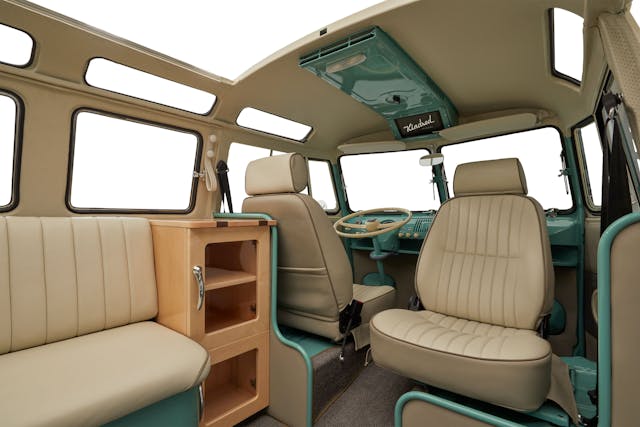
By creating a standardized process, Howard explains, Kindred employees do not need to be veteran auto technicians. As is the case with mass-market vehicle production, workers will be trained.
“Although we need master mechanics in certain steps, we don’t need them for all,” he says. “We’re taking the knowledge out of the master mechanic’s head and putting it into our technology platform. In our world, a task is a task. It doesn’t matter which car it is.”
Integrating parts inventory management into the technology platform will also help to keep production on schedule.
Warranty and service

Howard wants to build Kindred into a brand that enthusiasts will immediately recognize for the kind of vehicles it builds. What Singer Vehicle Design has done with its “reimagined” Porsche 911s comes to mind.
The cars will wear “Kindred” badges, and the company will maintain a registry to track vehicle ownership. Howard says original and subsequent owners will get warranty work and vehicle service through a network of providers currently being set up.
“We will have complete information about every vehicle we build, including knowing which technician did every step and every part that went in. We can order parts for each car with a click.”
New customers will be able to order entirely online, and when new models are launched, existing owners be offered early access to pre-ordering.
In the ongoing debate about how the hobby goes forward as the new-vehicle industry transitions to EVs, where does Kindred Motorworks fit in? Consider that many younger enthusiasts are discovering the appeal of 1980s and 1990s cars for their modern driving benefits. Meanwhile, enthusiasts of all ages who admire the style of earlier icons go to great effort and expense to modify and restore them for better daily driving.
Kindred seems to be aiming at both groups, as well as newbies. Granted, with sticker prices well into the six figures, these builds are not exactly within the grasp of the average Joe. But ideas at the top of the food chain inspire other innovators, and the concept of a restomod that looks like a one-off custom but is as straightforward to buy as a new car? It’s an interesting one, indeed.
Check out the Hagerty Media homepage so you don’t miss a single story, or better yet, bookmark us.

